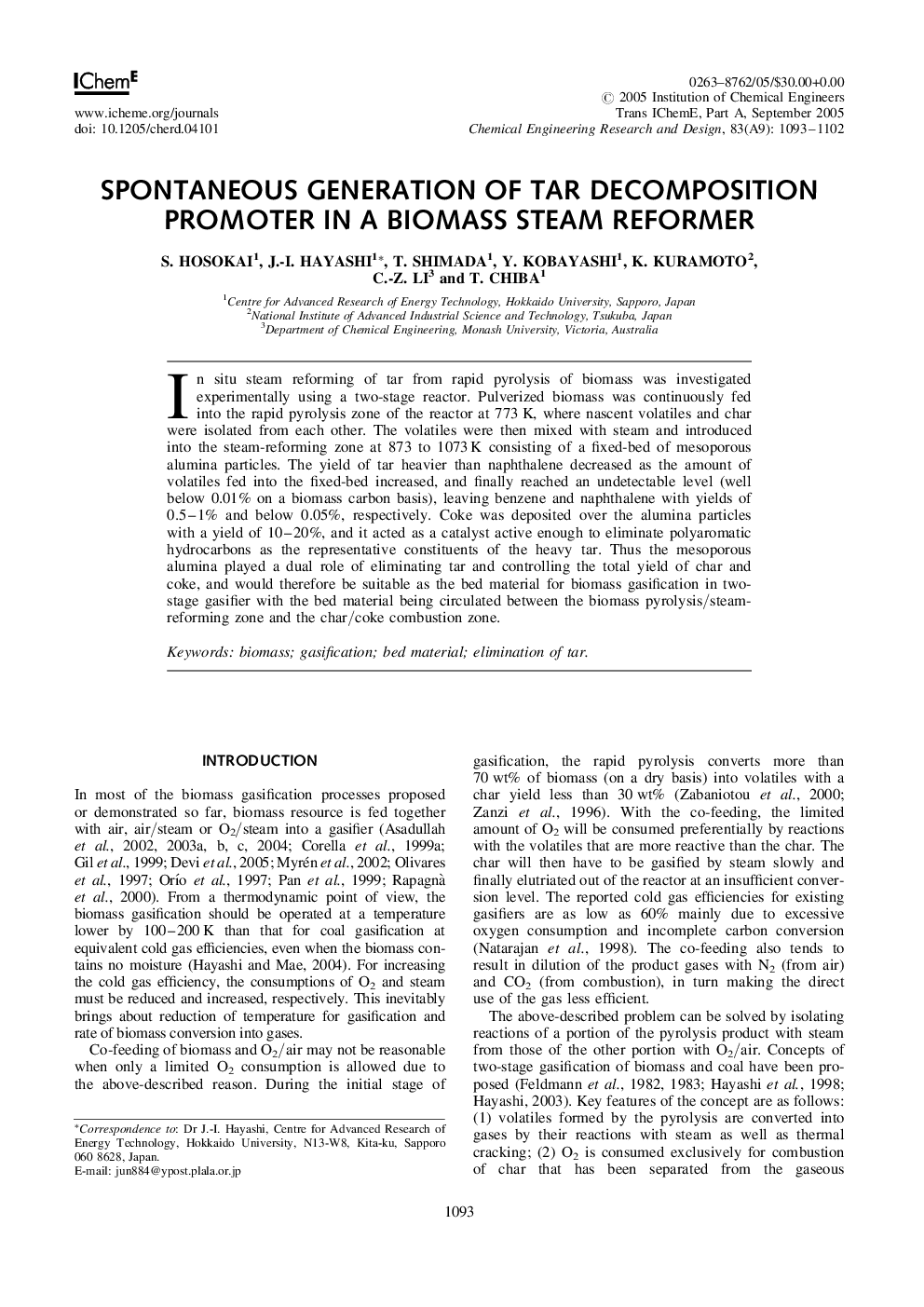| Article ID | Journal | Published Year | Pages | File Type |
|---|---|---|---|---|
| 10385740 | Chemical Engineering Research and Design | 2005 | 10 Pages |
Abstract
In situ steam reforming of tar from rapid pyrolysis of biomass was investigated experimentally using a two-stage reactor. Pulverized biomass was continuously fed into the rapid pyrolysis zone of the reactor at 773 K, where nascent volatiles and char were isolated from each other. The volatiles were then mixed with steam and introduced into the steam-reforming zone at 873 to 1073 K consisting of a fixed-bed of mesoporous alumina particles. The yield of tar heavier than naphthalene decreased as the amount of volatiles fed into the fixed-bed increased, and finally reached an undetectable level (well below 0.01% on a biomass carbon basis), leaving benzene and naphthalene with yields of 0.5-1% and below 0.05%, respectively. Coke was deposited over the alumina particles with a yield of 10-20%, and it acted as a catalyst active enough to eliminate polyaromatic hydrocarbons as the representative constituents of the heavy tar. Thus the mesoporous alumina played a dual role of eliminating tar and controlling the total yield of char and coke, and would therefore be suitable as the bed material for biomass gasification in two-stage gasifier with the bed material being circulated between the biomass pyrolysis/steam-reforming zone and the char/coke combustion zone.
Keywords
Related Topics
Physical Sciences and Engineering
Chemical Engineering
Filtration and Separation
Authors
S. Hosokai, J.-I. Hayashi, T. Shimada, Y. Kobayashi, K. Kuramoto, C.-Z. Li, T. Chiba,
